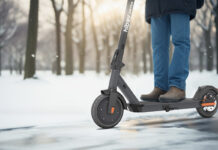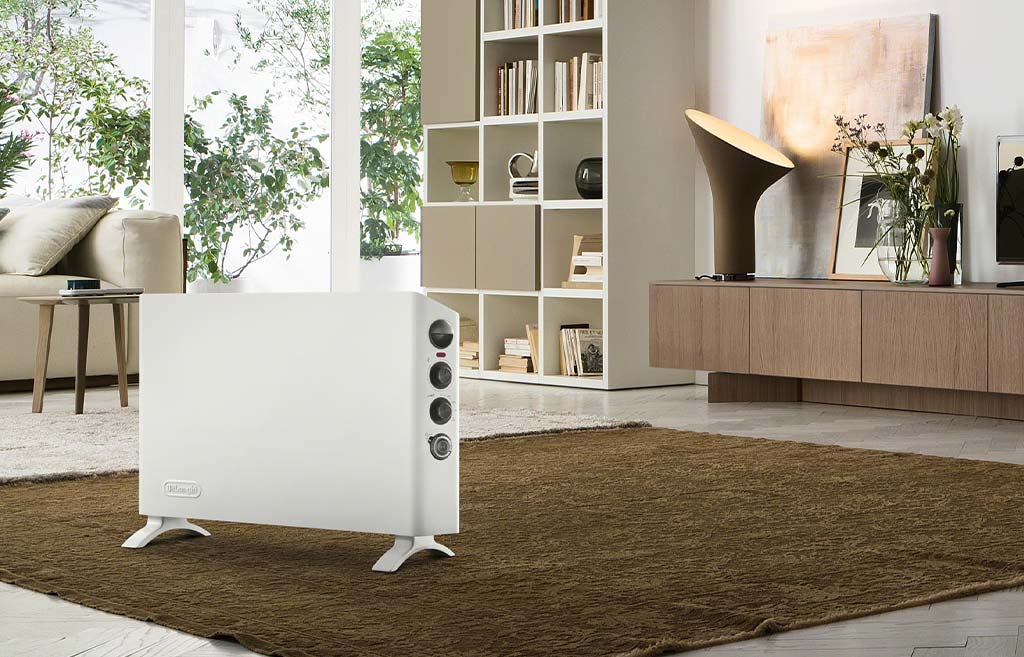
There has been a lot of talk about space heaters of late, and particularly how safe they are to use in the home. Space heaters are useful small home appliances that are totally safe to use, when they are used safely and for their intended purposes. It’s no different than any other appliance or electrical device in your home, from your hair dryer to your slow cooker and gas stove. Following proper safety guidelines will ensure that you get the most out of your space heater.
What is a space heater?
A space heater or portable heater is a small appliance designed to help provide warmth in a small area or room of the home where it might get extra cold. It plugs into a power outlet and has an on/off switch. Some have multiple temperature options along with safety features like auto shut-off, timers, and overheat protection. Other features might include smart operation via an app, oscillation so you can sufficiently warm a larger room, and a cooling option.
When would you use a space heater?
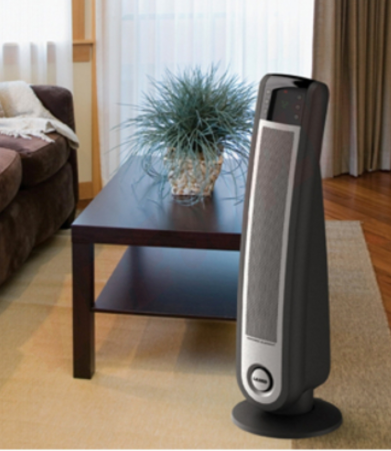
You might want to use a space heater to warm your home office during the day, for example, or the basement when guests are over. This means you don’t have to crank the furnace and can save on utility bills by adding extra heat only where and when you need it.
If there’s a spot you like to sit that often gets a draft in the winter from windows that need replacing, a space heater can help.
Space heaters are good for rooms that don’t get heat from the inside of the house, like a garage where you might work in the winter or have a home gym set up.
Space heaters can also come in handy in event of an emergency, like your furnace breaking down right when the temperatures have dipped to below zero. A space heater can also help if you need to thaw out frozen pipes and don’t want to stand in one spot with a hair dryer for an hour so you can get the water running again and avoid the costly damage from a burst pipe.
What types of space heaters are there?
There are four main types of space heaters: ceramic, radiant oil filled, forced air, and infrared.
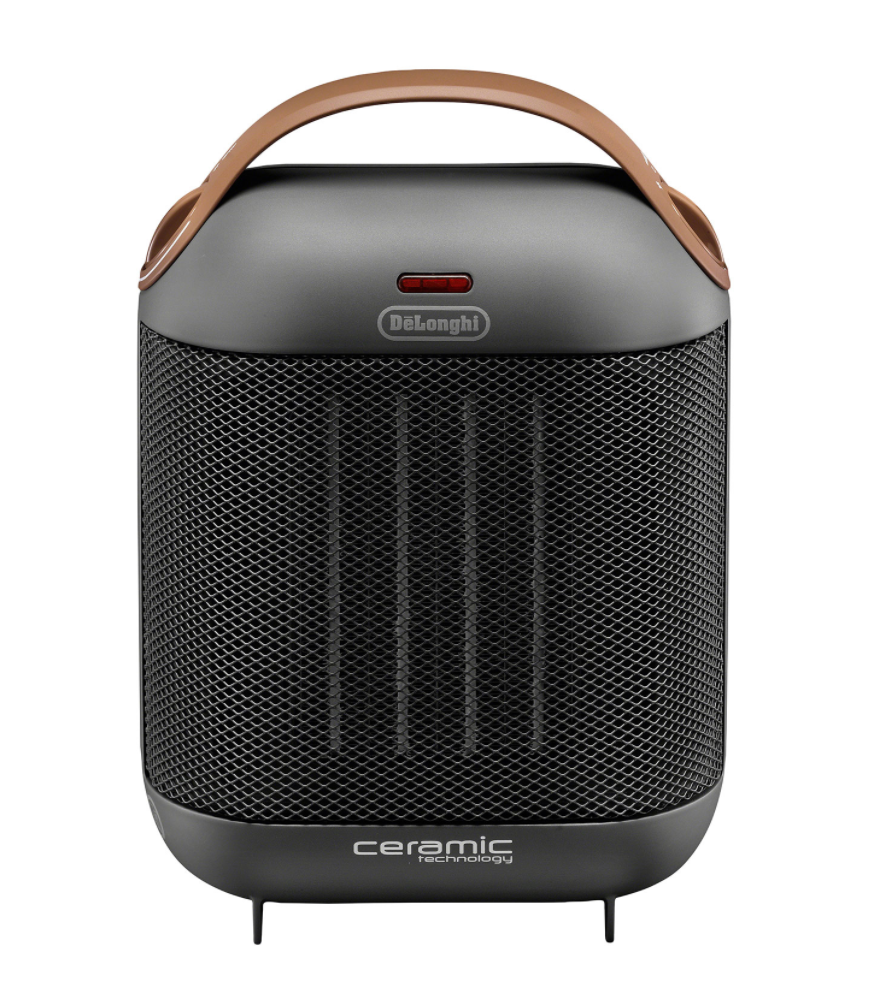
Ceramic space heaters: These use electricity to heat up a ceramic heating element. They are lightweight and safe since they are cool to the touch, making them among the most popular types.
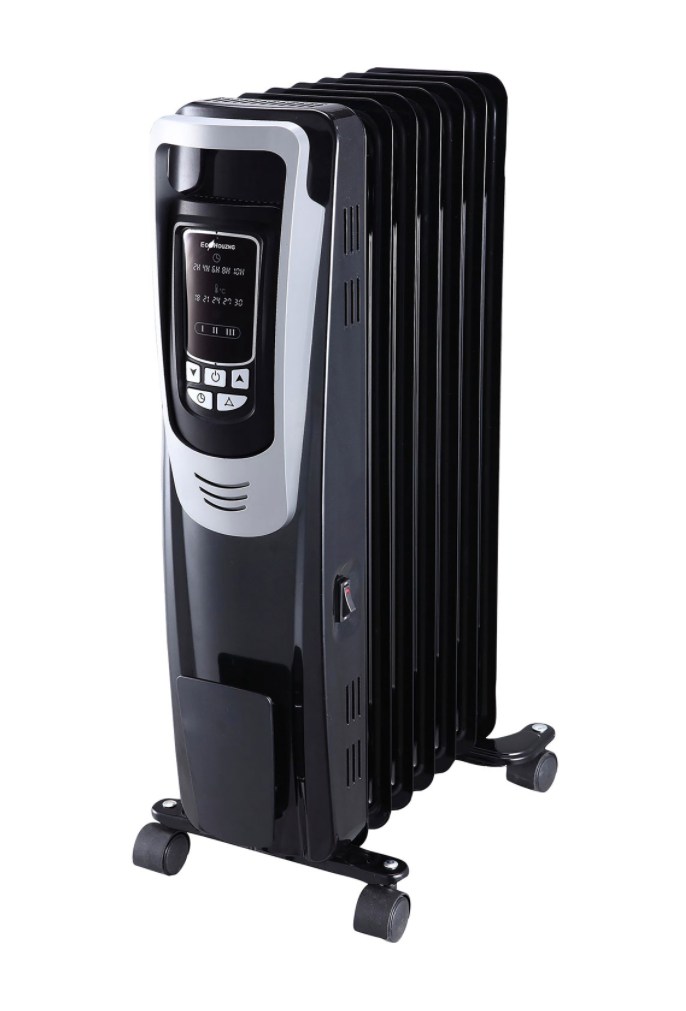
Radiant oil filled: An oil-filled compartment heats up to keep a radiator hot instead of hot air blowing out of the unit. Because of this, they tend to be quieter than others, but they also take longer to heat and won’t provide that nice, toasty warm breeze.
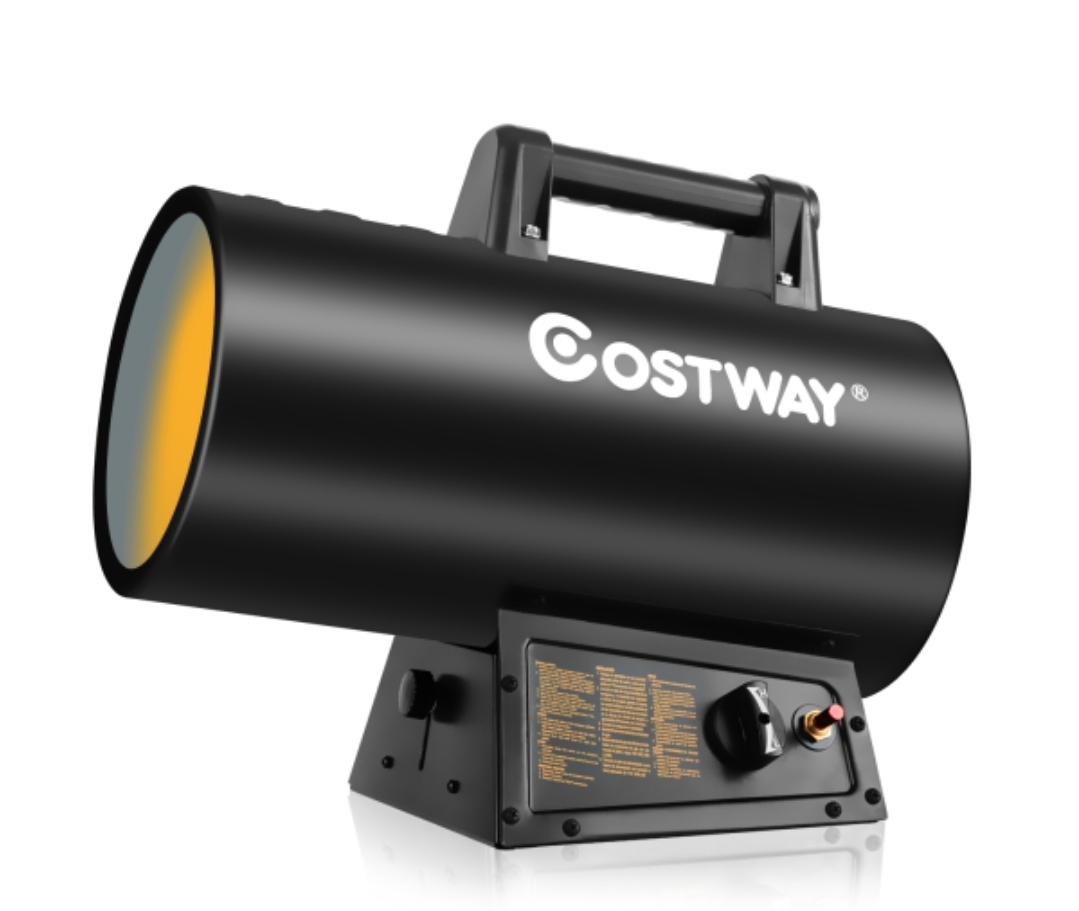
Forced air: These use natural gas or propane, so once they are lit, you’ll get immediate hot air. They are best for large spaces but require connection to a gas supply or run until the propane is done. They are more popular for use outdoors.
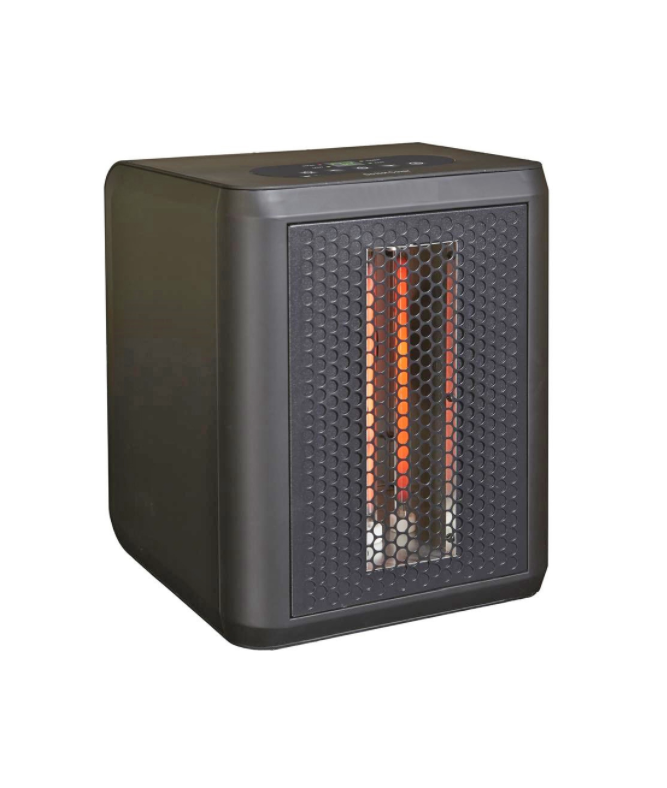
Infrared heaters: Designed to heat a specific object or person, infrared heaters are popular for added heat indoors (or outside). They are often designed to be ultra-portable so you can take them from room-to-room, or to be mounted on a wall or ceiling. Because the heating coils don’t get very hot, they are safer to use than some other types.
7 tips for using a space heater safely
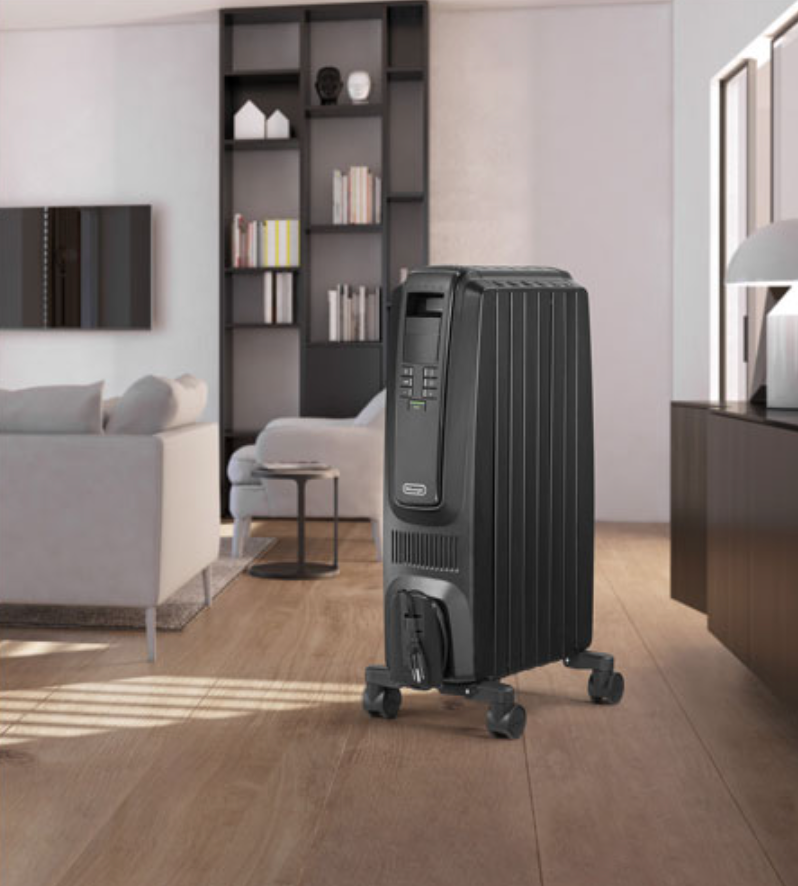
1.Don’t plug it into an overloaded outlet
You should never plug a space heater into an already overloaded power outlet. While you should ideally avoid using an extension cord as well, if you must, make sure it’s a quality cord that isn’t frayed or damaged. Also, don’t run it under carpets or through walls or doorways. Not only could this pose a tripping hazard, but if there’s an issue with the cord and sparks fly, it could be dangerous.
2.Be mindful of children and pets
While many space heaters have tip-over protection, you want to be extra careful when it comes to kids and pets. Not only could accidentally tipping one over present a fire hazard, but if a child or pet even leans on one, they could get burned, or at the very least, uncomfortably hot. If you have kids or pets in the house, you’ll want to opt for a ceramic space heater, just to be safe.
3.Do not use them to warm items
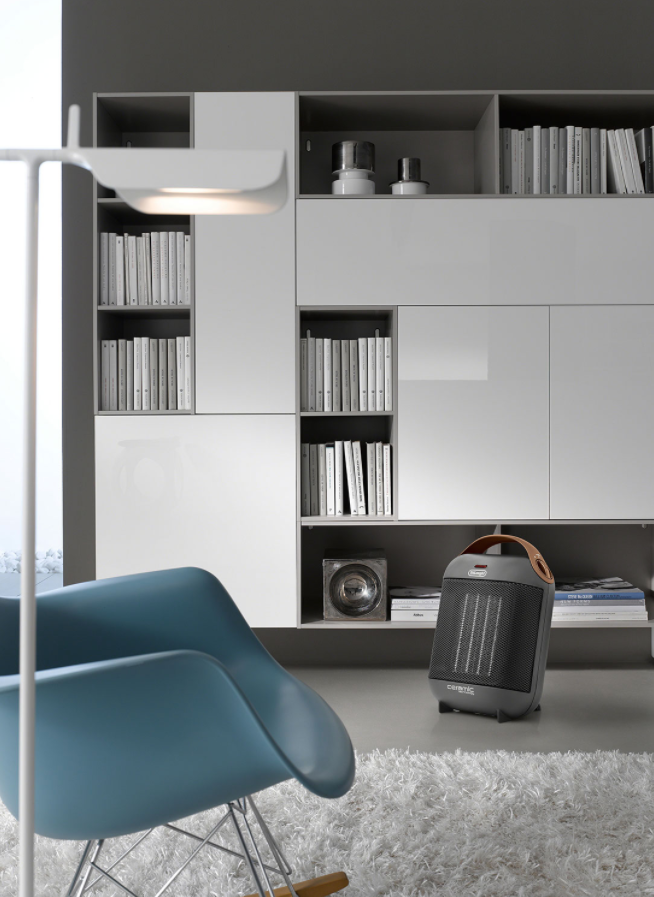
While it might be tempting to dry off your child’s wet socks on a space heater after they come inside from playing in the snow, it’s never a good idea to use a space heater as a dryer. Anything flammable could catch and the outcome would not be worth the time or energy you might save by not using the dryer or hanging the socks or boots somewhere to dry off over a longer period of time. The same goes for a blanket, towel, or any other flammable item. With that said, there’s nothing wrong with holding your freezing cold hands a foot or two in front a space heater for a few seconds to warm them up when you come in from the cold.
4.Make sure there’s sufficient space around them
A space heater should not be squeezed into a cramped space. Ideally, it should have three feet of space or so around it in all directions. You also want to position a space heater onto a non-combustible surface, and make sure nothing combustible is anywhere near it. This could be anything from a floor mat or carpet to a pile of laundry, curtain or drape, the edge of a blanket, or even fabric furniture.
5.Check for faulty cords, damaged components
Before using a space heater, especially if it is an old one you have had tucked away in a closet for ages, inspect it. Make sure there are no rips or breaks in the cord, and that no components appear to be damaged. Keep an eye on it as it’s running. If anything seems amiss, it’s better to replace than use it.
6.Do not run them for long periods, overnight

Depending on the type of space heater and the ventilation, you might want to avoid running one all day long. Forced air space heaters, for example, that run on gas will release carbon monoxide into the air, which is why they are most often found in heaters designed for the outdoors.
You also want to avoid running a space heater overnight, where it will be unattended. In the event of an emergency, you might not know until it’s too late that the heater caught on something and ignited, or a faulty cord caught fire.
7.When in doubt, replace
Like with any device in your home that you plug into an electrical socket, when in doubt, throw it out. (Or, in this case, send for safe recycling). Having a spare space heater that has been handed down for generations might sound like a great way to save a few bucks, but the potential safety hazards are not worth the risk. Space heaters are relatively expensive, particularly for portable models designed to heat a small space. Invest in a new one and save your affinity for vintage gear for things like turntables and VCRs that you know still work swimmingly.
Using smart home devices to help alleviate concerns
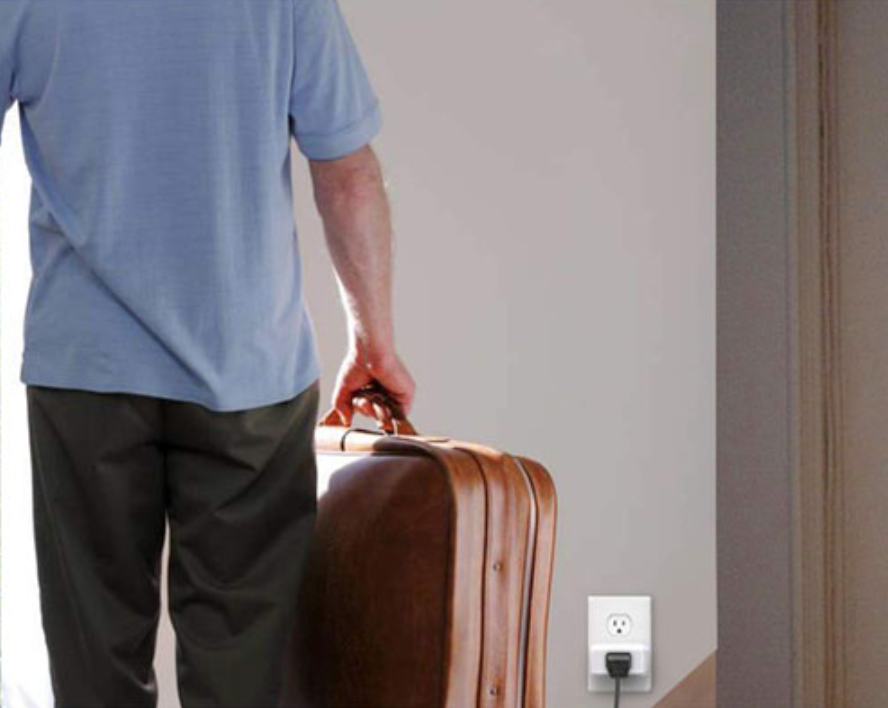
By adding smart home capabilities to a space heater, you can actually address some of these concerns. Using a smart plug, for example, between the space heater and the power outlet (remember, don’t overload the outlet) would allow you to remotely control the space heater from a mobile device. So, if you forgot to turn it off before going to bed, you can easily do so from your phone instead of leaving it on because you’re too tired to run downstairs.
You could also set one on a timer, so it turns on at 8 a.m. each morning, for example, and your home office can be warm and toasty by the time you head down for 8:15 a.m. Also, have the timer shut off the heater at 5 p.m. to prompt you to log off for the day.
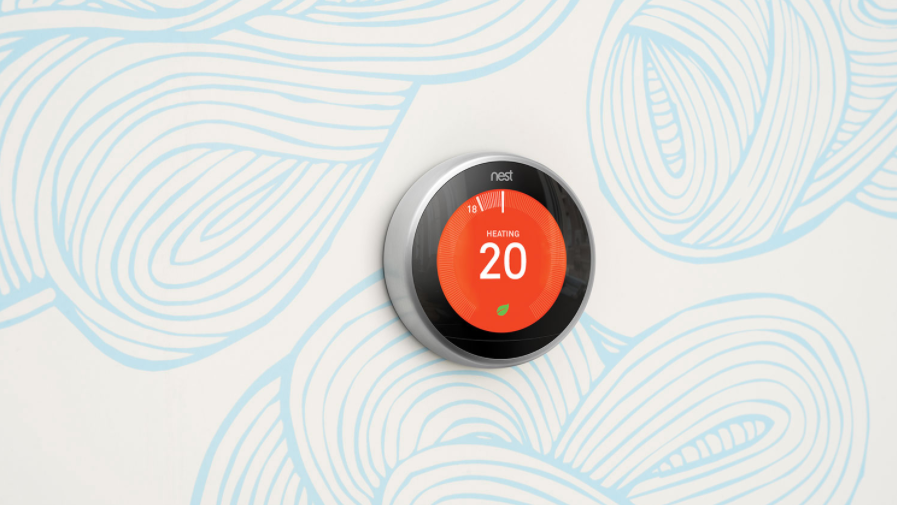
Having a smart thermostat that can report the temperature to your mobile device, or sense the temperature in the room and turn down the furnace heat when the space heater is working can keep the temperature in the room ideal, and save you money in the process.
Space heaters are safe when used with care
While you might be scared off by horror stories, space heaters are completely safe to use in the home, when used correctly. Accidents can happen, but by taking all of the proper safety precautions, using space heaters in the right way and the right spots of the home, and always making sure they are in proper working condition, they will help keep you warm and toasty whenever you need it.
Check out a wide selection of space heaters at Best Buy Online.



